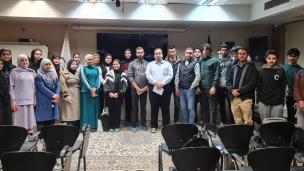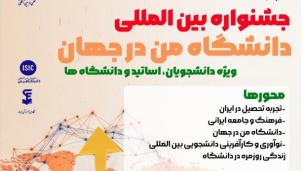|
If we are going to travel and study abroad, things that we should prepare are not only our passport and personal belongings. We should know what we can or cannot do in each country too. There is a phrase ‘When in Rome, do as the Romans do’, which means the importance of adapting yourself to behave like the customs of the people in a certain place. Therefore, Iran is not excluded from this fact and has its own rules and regulations. The Islamic Republic of Iran, as the term itself suggests, is an Islamic country and has its manner. Iran is a civilized country, and consequently, its rules are usual and conventional. However, they may a little bit different from other nations just in some details such as dress-code, alcoholic drinks, bars, religious beliefs. We will explain them completely.
One of the biggest mistakes you can make is arriving in a country with no idea of the dress or clothing etiquette. The Iranian attitude towards the dress code is more casual than you might expect, but there are rules you have to follow. In Iran, women should have Hijab in public places. In the sense that they should wear a suitable scarf to cover their hair, and dress in such a way that their bodies should be covered with loose clothes like a coat or manteau. Besides, arms should not be bare and legs should be covered down to ankles. The dress code for men depends on the situation. Generally, long pants or jeans and a T-shirt or long-sleeved shirts are perfect attire for men. Iranian men dress smartly and really care about their appearance. You may see that many men wear formal in public but wearing a tie is not pretty normal. They wear ties or bows and T-shirts depending on their plans and events they are attending. Even though many young men dress casually or look very hip, due to government regulations, they do not wear shorts or sleeveless vests in public places even during the hot season. For university, they should dress officially. In educational settings, female students have to wear proper long manteaues and pants as well as scarves covering their entire hair. Wearing mantos with lively colors and thin body cloaks, as well as using excessive jewelry and heavy makeup have also been forbidden. Male students must wear simple and common clothes including proper shirt and pants. They must avoid unconventional hair styles, very short sleeve shirts, tight, torn and short pants, boxer shorts, slippers, low seat pants, ties and bow ties.
In Islamic countries, it is forbidden to drink alcohol. According to the law, using, selling, or buying alcohol is illegal for anyone in Iran. So, it is not sold or served in cafes, restaurants, and hotels, or anywhere else around the country. You must know that bringing alcohol into Iran is illegal as well. So, if you have packed any kind of alcoholic drinks in your suitcase, guess it is the time when you need to unpack them right away. Stay away from such drinks because being caught drunk or while drinking alcohol, or even carrying alcoholic drinks will lead to certain punishments. Since the use and production of alcohol are both illegal then it shouldn’t be much of a surprise to know that there is no drinking age in Iran. So no matter how old a person is they cannot drink alcohol in this country. Although alcohol is illegal in Iran, there is a wide variety of soft drinks you might never heard of. It is astonishing to try and enjoy so many different drinks in a country in which drinking alcohol is not allowed.
Just as mentioned above that alcoholic drinks are banned to be produced or sold in Iran, hence there are no liquor stores, bars, or nightclubs within the country and you won't find any public places to drink and dance. Yet, there are a lot of good restaurants and cafes in Iran, and you will find many people hanging out there, grabbing some soft drinks, chit-chatting, and spending some quality time.
Most Iranians believe in Islam - the majority are Shi’a. Non-Muslims should be treated in accordance with “ethical norms and the principles of Islamic justice and equity”, respecting their human rights. It also legally recognizes Zoroastrians, Jews, and Christians as free to perform their religion. The Iranian have strong beliefs and commemorate the birth and death days of their holy Imams to respect them. Besides, they usually hold different religious ceremonies in some lunar months like Muharram, Safar, and Ramadan. Being in Iran during these holidays can be a truly extraordinary experience and a perfect time to learn about its most prominent religion and a chance to learn about local culture in a new and intimate way. |







